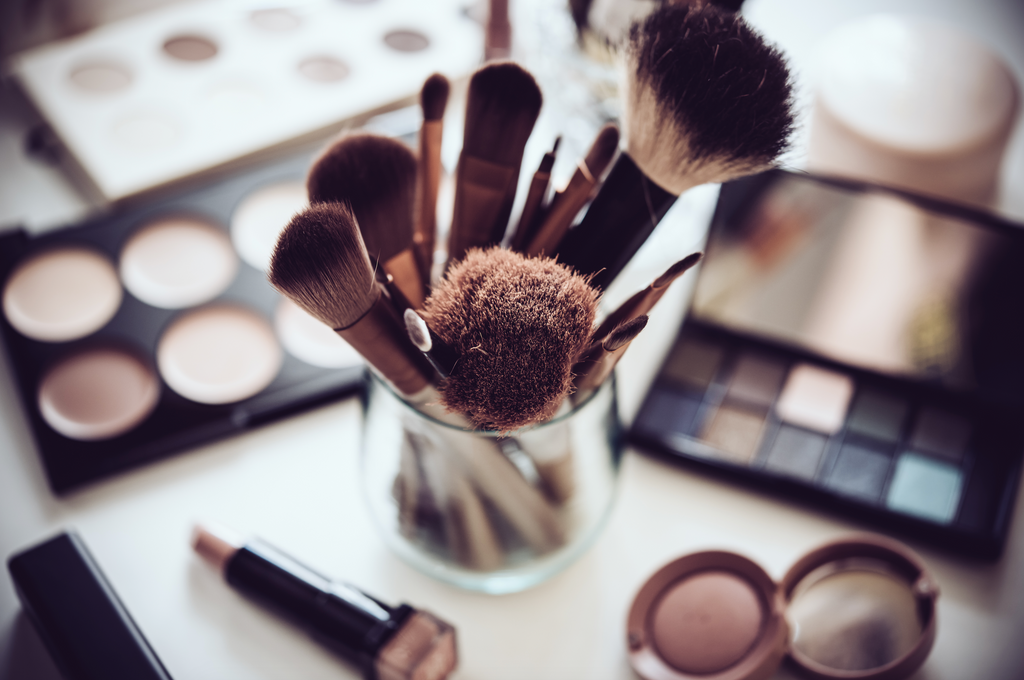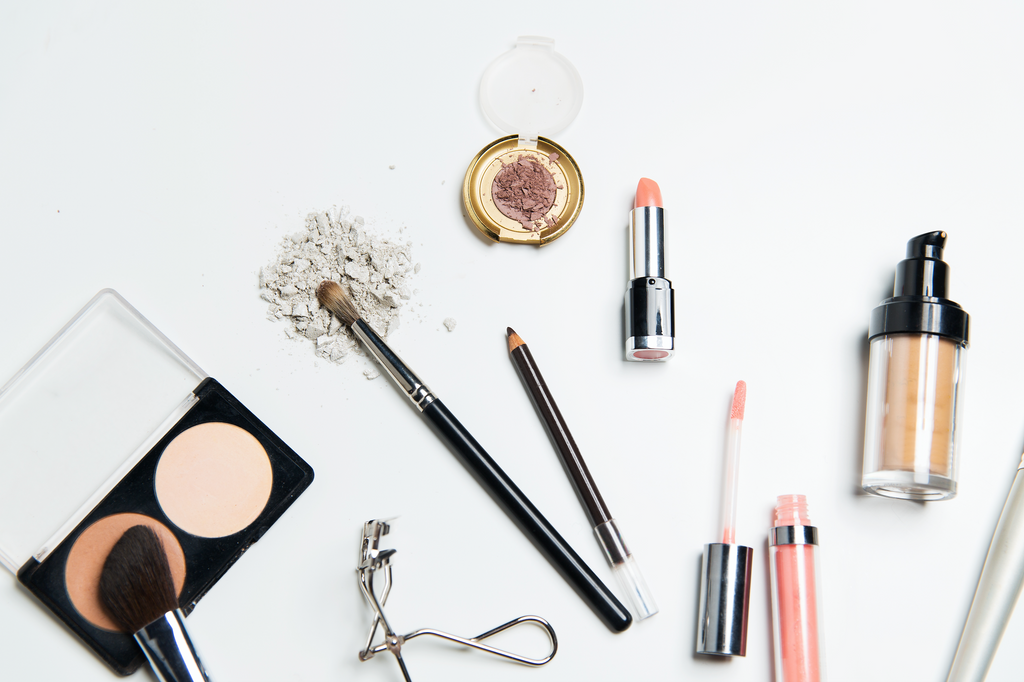All good things come to an end, including the shelf life of your favorite beauty products. Whether you're a total makeup lover or have a select few favorites, it can be tempting to use products beyond their expiration.
While it can seem harmless at first, the truth is that it can set your skin up for a ton of problems in the long run. As many of us have been wearing less makeup over the last few years, it's a good time to take stock of your makeup stash. So, keep scrolling for tips on how to know when it's time to part ways with old products taking up space in your makeup bag.

Does makeup really expire?
This is where the label comes in. If you've ever had the chance to read the ingredients label on a beauty product, you may have noticed that underneath there's a small open jar symbol with a number and the letter "M" listed next to it. This is called a period-after-opening (PAO) symbol and it’s the first place to start when counting down the months until a product expires, explains Kerry E. Yates, founder and CEO of Colour Collective. "That number will usually range from 3, 6, 9 and 12 months for makeup. When you hit that number, throw your makeup away. The date communicates how long your product will stay 'clean' after you have contaminated it with your hands, face, makeup brushes or Beauty Blenders," she says. To keep track, it's best to use a permanent marker to date the product once the seal is broken.
Related Articles
You may notice that eye makeup like mascara and eyeliner has one of the shortest shelf lives lasting only 3–6 months. This is because the eyes are particularly prone to all kinds of bacterial infections like pink eye and styes. As soon as your mascara wand or eyeliner is exposed to air for the first time, all bets are off for when bacteria can latch on. According to Shoshi Fischman, aesthetician and laser specialist at SpaDerma, the packaging and handling of the product also plays a significant role in how bacteria is spread. "It's important to wash your hands before using any products you're putting your hands directly into. Products with a pump or tube can be better for keeping bacteria out but they are still not bacteria-proof," she says.
Fischman also explains that since most preservatives used in cosmetics are only tested for the amount of time specified on the label, once the expiration date is up, it's the perfect place for mold and bacteria to grow. It's safe to say that natural products can expire the fastest because they're free of preservatives.
When should you throw out your makeup?
Start by examining the container. Holding out a product to inspect it can tell you a lot about what might be lurking underneath. If your favorite lip gloss looks clumpier or stickier than usual in the tube, this can be a major giveaway that something's amiss. It's best to check the smell of eye makeup like mascara because, over time, it can develop an unmistakable rancid smell. This type of contamination is not something worth spreading to friends who may ask to borrow makeup. It's always best to avoid sharing makeup with anyone, but this is especially true when a product might be expired because it may be trapping bacteria that's causing all of the changes in its look.

How do you know if your makeup is expired?
Watch for changes in your makeup upon application. If you can see that a product doesn't seem to be applying or absorbing into the skin as it did before, it's probably best to toss it. A tell-tale sign that something's off is a waxy buildup with a gray film that can form over the outer layer of a product, explains Yates. She adds that abnormal separation in a product like liquid foundation is questionable and if black pigment forms, this should raise a huge red flag. Expired products in this state can lead to breakouts, explains Fischman. "What I often see is contact dermatitis which is an irritation that can present itself differently. Typically, it's red, itchy, flaky skin but can also look like a chemical burn for some people," she says
When it comes to cleaning out your makeup stash, it's best to trust your senses and go with your gut. As painful as it can be to let go of your favorite product, it's better to be safe than sorry.













